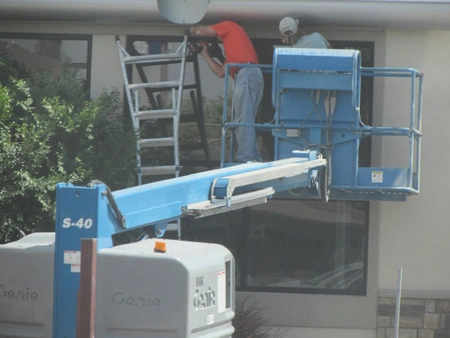
The Occupational Safety and Health Administration (OSHA) is the most frightening four-letter word a contractor can hear on any of their jobsites. As of Aug. 1, penalties for OSHA violations have gone up 78 percent, with a serious violation costing a contractor $12,471 per violation. A failure to abate penalty jumped to $12,471 per day and a willful or repeated violation increased to a whopping $124,709 per violation. The penalties have become so punitive that many smaller contractors will probably be forced into bankruptcy if they get caught violating an OSHA requirement.
OSHA contends that their primary mission is the health and safety of the American worker and these penalties had to be updated with inflation to give a real bite to enforcement. There is little doubt these fines and the increased enforcement activity have gotten the attention of many contractors while others continue to do business as normal. According to OSHA, more than 4,500 workers are killed on the job every year and there are 32,000 workplace inspections. Given the results of the election and the political environment in Washington, D.C., no contractor should expect that OSHA will reduce the number of inspections and violations.
In August, OSHA issued violations to national builder D.R. Horton in the amount of $68,591 and Garcia Carpentry, a framing contractor from Winter Garden, for $27,000. The violations cited workers performing decking at heights of up to 25 feet without fall protection, employees using the top step of a stepladder to get on trusses, workers installing plywood with employees underneath without a hardhat and workers on the jobsite using tools without safety glasses. The wake-up call for all builders is that these violations occur on almost a daily basis at jobsites throughout Lake and Sumter counties.
From January to October, 11 Florida-based construction companies have been issued major penalties of more than $1 million, with the average penalty totaling $91,759. These companies include framing, manufacturing and construction, as well as many roofing companies. These penalties do not account for those citations totaling less than $40,000. These numbers indicate that enforcement activity and penalties have definitely increased for Florida construction companies.
Falls are the number one cause of death in the construction industry. Roofers, along with framers who install trusses and deck projects, seem to be the most targeted tradespeople. Below are the top ten causes for an OSHA citation over the last year:
- fall protection
- hazard communications
- scaffolds
- respiratory protection
- improper lockout/tagout procedures
- powered industrial trucks
- ladders
- machine guarding
- electric wiring
- electrical-general requirements
Many construction companies go through the motions of safety and OSHA training because it is something their insurance or company requires, but the increased penalties and enforcement activity demands that construction managers give safety a lot more attention. Labor shortages have forced many companies to use poorly trained workers on their jobsites and this lack of experience is opening the door for more accidents and safety violations. Implementing a real safety program with diligent enforcement and a strong designated safety director is the only answer.
One cautionary note for homeowners: With these new OSHA regulations and fines, a homeowner that chooses to be his or her own contractor could be taking a lot of responsibility if an accident occurs on their job. Be sure to have proper insurance and safety standards in place on your job to prevent problems in the event of an accident or death.
A death, amputation or catastrophe on the jobsite as well as a complaint by a disgruntled worker or something perceived as imminent danger can trigger an OSHA inspection on a jobsite. An OSHA inspector driving down the road and seeing roofers installing shingles on a roof without fall protection is considered imminent danger. Be aware — you can be inspected at any time. Are you prepared?
You can be, and can avoid penalties with the proper training for each job you perform. You can find training at the following links:
